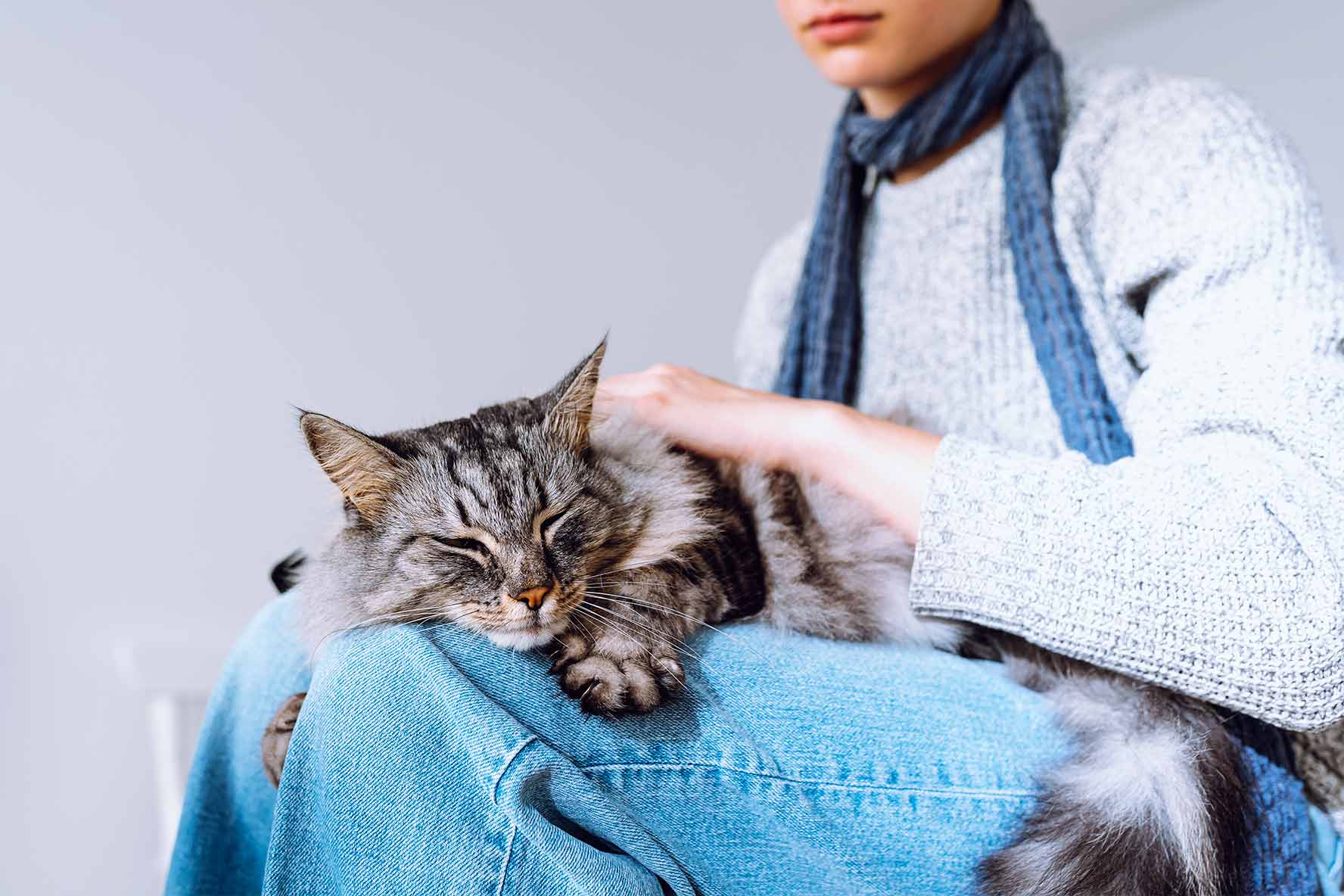
Chemotherapy is a well-known and widely utilized treatment for cancer in both humans and animals. When it comes to pets, particularly dogs and cats diagnosed with lymphoma, chemotherapy is often a crucial part of their treatment plan. Lymphoma is a complex and concerning diagnosis as it affects the entire body, meaning it needs treatments like chemotherapy to combat it effectively and bring their cancer into remission.
How Lymphoma is Diagnosed
As with many diseases, lymphoma is often found by looking at a patient’s health during their routine check-up if you or they notice swelling in your pet’s lymph nodes. If your vet is concerned your pet has lymphoma, they will often refer you to an oncologist that they trust and are familiar with. Now, you can also look for an oncologist that works with ImpriMed, a precision medicine company focusing on advancing the treatment of pets with lymphoma.
Rather than only going forward with the standard tests in your oncologist's office to find out what kind of lymphoma your pet has, your veterinarian can use ImpriMed’s advanced labs and ever-growing databases to identify and diagnose the specific form of lymphoma that your pet has, as well as develop a Personalized Prediction Profile of what treatment protocol will be the best for their specific, individual needs.
Precision medicine tailors treatment to the individual, taking into account the genetic makeup of the tumor cells. It aims to offer more effective treatments because they are specific for the individual.. By understanding the specific genetic and molecular characteristics of a pet's cancer, veterinarians can devise targeted treatment plans for better outcomes. It allows for a more personalized and effective approach, improving the quality of life for the pet undergoing treatment.
You can read more about how precision medicine is changing how we treat our pets in this blog.
Treatment Options for Pets with Lymphoma
While the most commonly chosen treatment for lymphoma is chemotherapy because it can target the cancer cells throughout the body, there are other options that you can make as a pet parent when it comes to your pet’s lymphoma treatment.
For both cats and dogs, treatment options for lymphoma include chemotherapy, radiation, surgery, and holistic approaches.
Treatment options for lymphoma will be determined more or less effective depending on the individual patient, where one may not benefit at all from a surgical treatment, another may have that as a crucial part of their journey to remission.
Choosing the right treatment for a pet diagnosed with lymphoma is crucial. Numerous treatment options exist, and each may have its own considerations based on the pet's health, stage of cancer, and potential side effects.
For more information on the pros and cons of these different treatment options, you can look at our posts for Dogs and Cats.
Chemotherapy Treatment Protocols
Chemotherapy is the most regularly effective treatment and most commonly chosen among oncologists worldwide for treating lymphoma in animals. But treating with chemotherapy isn’t a one-size-fits-all method. There are many different chemotherapy drugs and other support medications that can be combined together to make different protocols.
The traditional method for choosing a chemotherapy protocol for pets with lymphoma is based on a trial-and-error method using long trusted research documenting the chemotherapy protocol that has had the best response for the longest amount of time in most dogs. This method is not the best for each and every individual patient, and there are so many potential protocols to choose from. Sticking with the main go to and seeing if it works for your pet can take more time than your pet has to find the right protocol.
You can see an overview of some of the more common drug combinations in our post here.
The protocol that is considered the “gold standard” of treating lymphoma is the CHOP protocol which is the combination of four drugs—Cyclophosphamide, Doxorubicin (sometimes called Hydroxydaunomycin), Vincristine sulfate (brand name OncovinⓇ), and Prednisone. This protocol is known for its effectiveness in inducing remission and managing the disease while mitigating the adverse effects of treatment on the pet's health.
You can learn more about the CHOP protocol in our post here.
What Happens to Your Pet During Chemotherapy
Chemotherapy for pets is designed with the goal of relieving symptoms. While it can be easy to think of the worst possible side effects, and what can happen to human patients when receiving chemotherapy, it’s best to keep in mind that for your pet it should never be that much of a burden.
Dogs and cats both commonly do not experience symptoms or major side effects while undergoing chemotherapy treatment. Their bodies are uniquely composed in that they tolerate the drugs in their system very well and the chemotherapy protocols are not as intense as those used in people so that our pets have better quality of life during chemotherapy treatment. Only around 15% of all dogs and cats receiving chemotherapy treatment have moderate to severe side effects meaning 85% do not have side effects or they are very mild.1
Common side effects include gastrointestinal issues, decreased appetite, fatigue, and lowered blood counts. Understanding and preparing for these side effects are vital to ensure the pet's comfort during treatment.
You can learn more about potential side effects from chemotherapy and how to lessen the burden of them on your pet here.
For a majority of pets, you won’t have to worry about the hair loss commonly associated with human patients going through chemotherapy treatment. The type of hair follicles found in most dogs and cats that lead to shedding are not affected by chemotherapy in the way that human hair and dog breeds with constantly growing hairs (such as poodles and poodle mixes) are.
To learn more about taking care of a dog’s fur while in chemotherapy treatment you can read our post here.
Many dog parents will want to help boost their dog’s health while trying to eliminate the cancer cells in their body. There are a few ways to do that—with food and with emotional support.
We’ve got blogs that go over foods that can help boost your dog’s diet during their chemo treatment and ways that you can cheer up your dog when they aren’t feeling the greatest from their treatment.
ImpriMed Helps
At ImpriMed, we are dedicated to supporting pet owners and veterinarians throughout the challenging journey of treating pet cancer. Our Personalized Prediction Profile, advanced labs, and constantly advancing research are designed to provide comprehensive support, ensuring the best possible outcomes for pets undergoing chemotherapy for lymphoma.
Find out how you can get your vet involved with ImpriMed here or find an oncologist that is already partnered with ImpriMed to get your pet the best possible treatment for their lymphoma.




